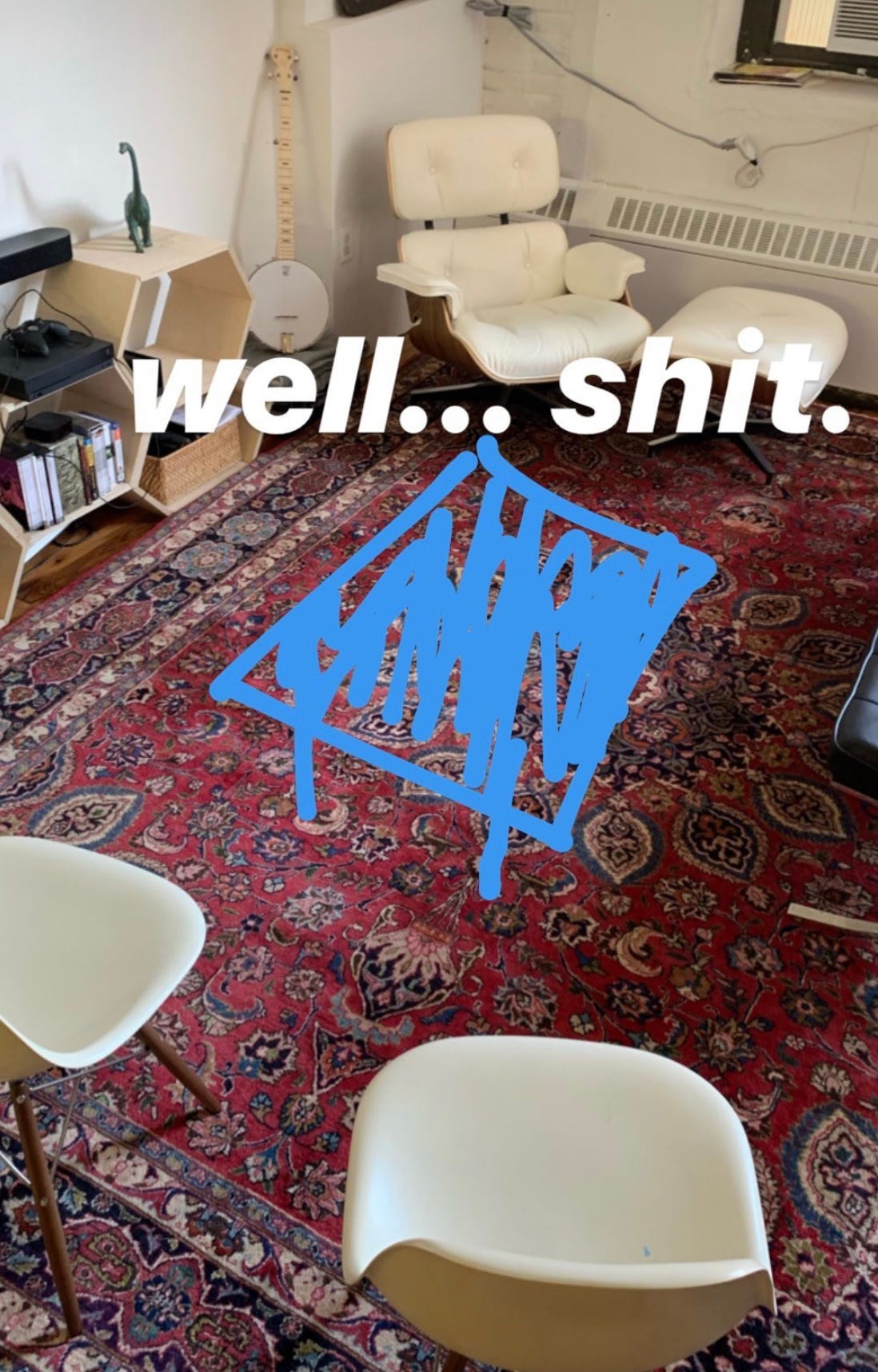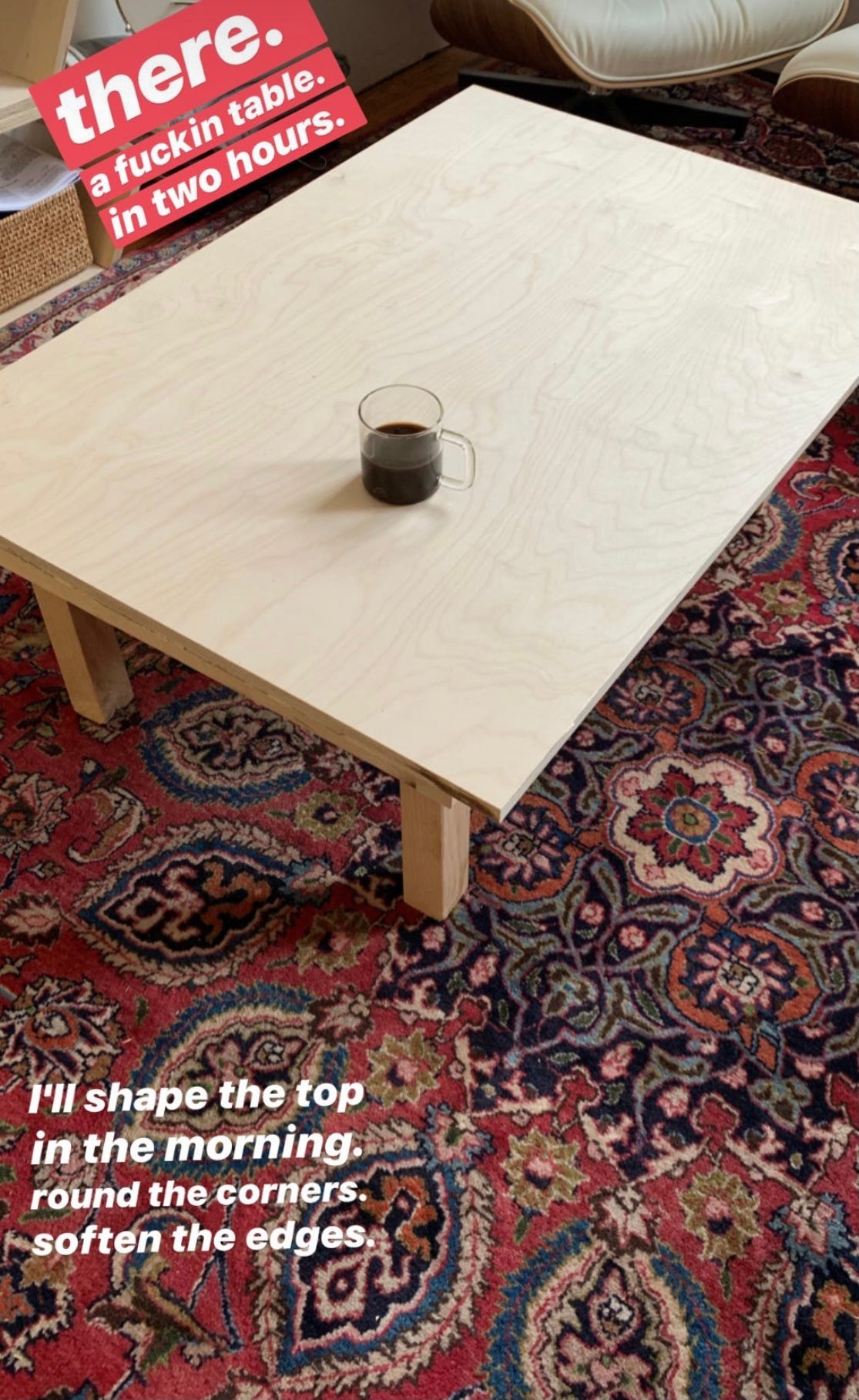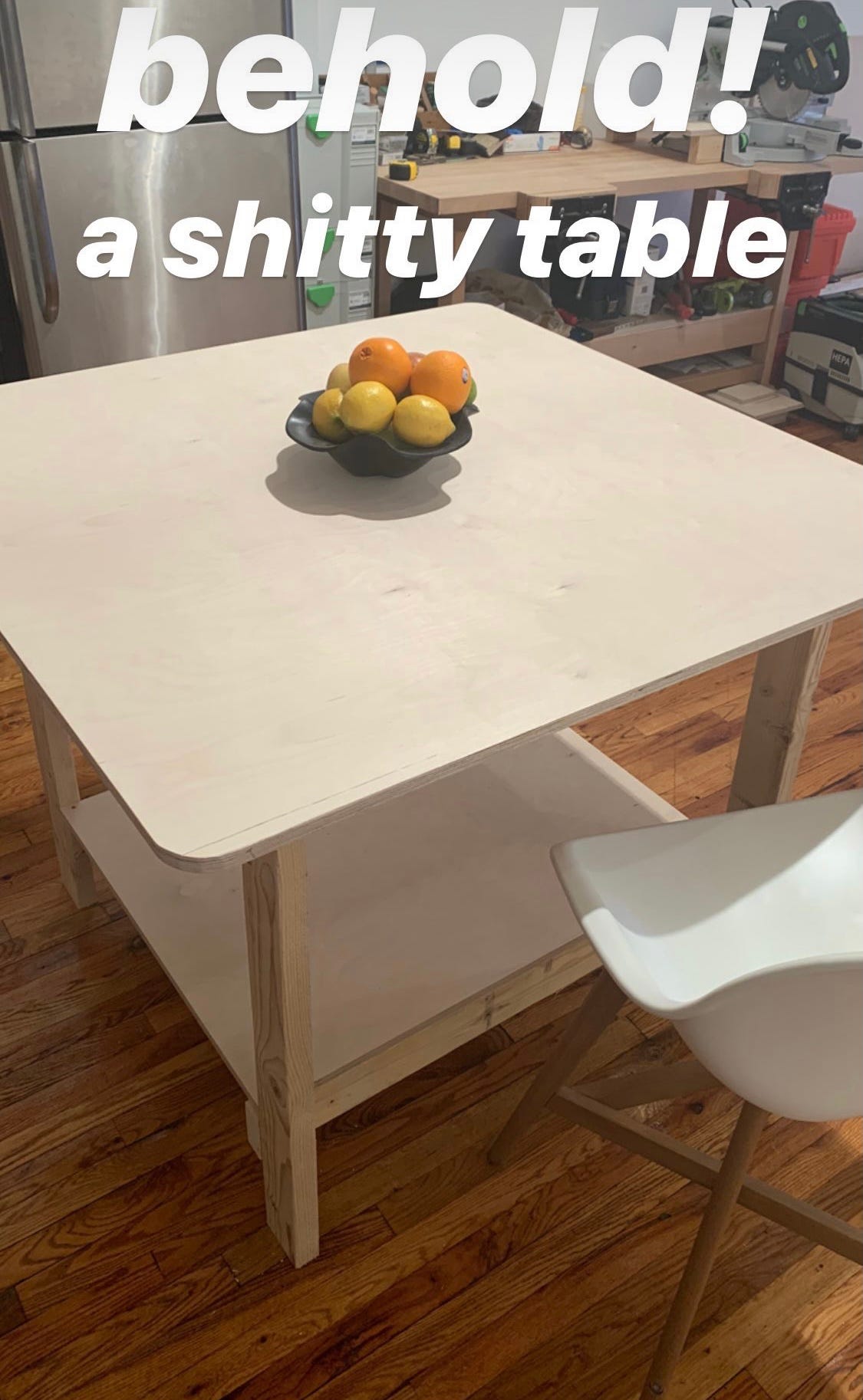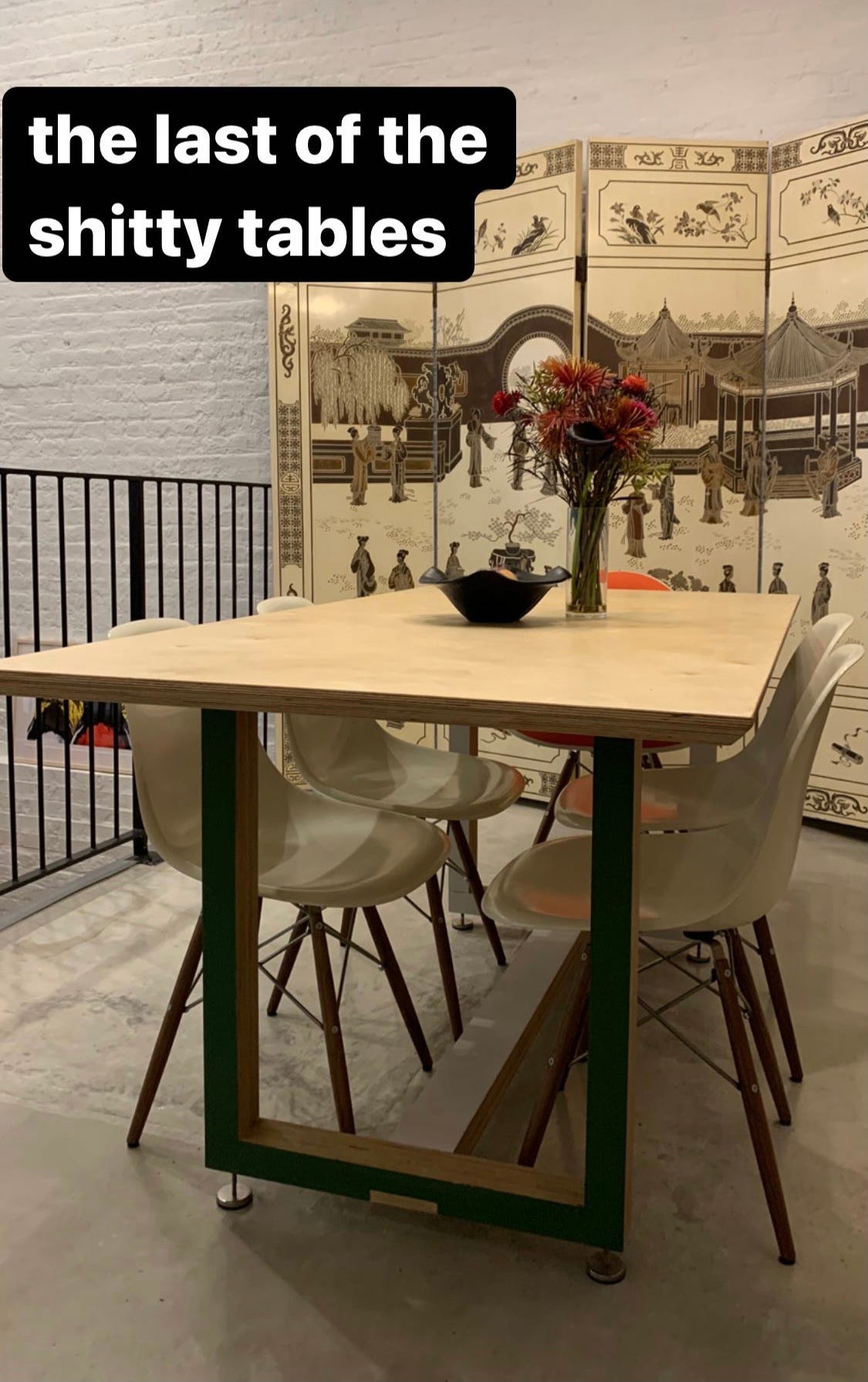I make a lot of tables. It turns out that a lot of what a person needs is a flat surface to put stuff on. So… tables. Tables for building other things. Tables for eating on. Tables for cooking on. Tables just for coffee. Tables just for computers. Flat surface. Four legs. Won’t fall over and break stuff that’s more important than the table.
For the past few years I haven’t had a space to actually build stuff. I had a bunch of portable tools, an open floor plan apartment, and no housemates to complain about sawdust everywhere. So, I just built a bunch of shitty tables.
The first one was an accident. I was throwing a party the next day and had dinner plans to go out the night before. I realized I didn’t have a coffee table and that would be useful for guests. So I built a table in two hours. Out of literal trash I was going to throw out. Thus a project was born.
Shitty tables was about one thing: make useful things no matter what. Use available materials. Don’t overthink the design. Make things that will last, but don’t worry about a generational time scale. Doing it is more important than doing it well.
It’s December 1st. That means another NaNoWriMo has come and gone. Another year, another 50,000 words logged for those who finished. And, for those of you that started but didn’t finish, you are farther along than you were. 30,000, 10,000, 5,000 whatever it was, you made progress and that deserves to be celebrated.
NaNo is a particular beast. In some ways, I dread it. My inbox gets flooded in December and January with dozens of queries from writers who finished the program and immediately sent off the draft to agents. It’s frustrating to see all the work that went into finishing as unfulfilled potential. To see folks put in so much work only to jump the gun.
But mostly, I love NaNo. I think it’s incredible to watch folks decide to do a difficult, daunting thing. To sacrifice their free time. To commit to a goal. Established writers, newbies, hopefuls who have been doing this year after year, striving for their goal to be published. It’s frankly beautiful.
There are downsides, sure. Burnout is real. Everyone’s writing process is different. And the person who writes three hundred words a day should not be shamed for the pace of their progress. The quick writer who churns out 10,000 words in a week should not be celebrated. Both paths have their merits and both have their flaws.
In the end, though, folx come together, as a community, to cheer each other on and to do the hard thing.
A common response to my Shitty Tables posts was people encouraging me to not self-deprecate or to tell me “that’s not shitty, that’s a great table.” And they’re right. They were great tables. I was proud of them. I made them and I made them according to principles I believe in.
But they were still Shitty. Because that was my goal. I wanted to make a “bad” table. I wanted to use the vernacular, to work fast, to use cheap materials. Because I learned things by doing so. Because I got a table I needed at the end of it. Because it got me out of a rut and taught me to love building things again.
A NaNo project is a novel. 50,000 words is long enough. It has the bones of a plot, the musculature of character, and the breath of a writer’s craft. It is a novel and one that anyone should be proud of.
I personally think a novel is never done. Changes can always be made. A sentence tweaked here. An ungrammatical turn fixed here. A proofing error caught. A character arc nudged. A plot resolved. There’s always more work one can do. No novel is perfect. No novel is complete. It is a map of a territory yet undiscovered.
One of the most common questions I get asked when doing a Q&A is “when should I start querying.” The answer I give is, “when you’re ready.” Because there’s no way to know, especially from inside the process, when enough is enough. At the end of November you might have a novel. You might even be ready. You might be as close to done as you can get. But, most likely, “ready” is months or even years away. Most likely, there are more words to write, revisions to wrestle with, critiques to be considered.
I recently rented a dedicated workshop for my woodworking. I can’t really afford it. I certainly can’t justify it. It’s an unwise, unweildy, expensive, time-consuming, and disruptive thing to do.
It’s one of the best decisions I’ve ever made.
My first project was to build a new dining table (the one we’d been using now lives in the workshop) and I decided it was the last of the Shitty Tables. It’s laminated plywood. The joints are rough. There are dings in the surface. Scrapes and dents in the veneer. The edges are uneven. I love it. It’s one of the best things I’ve ever built.
Building Shitty Tables was important to me. It helped me figure out my craft, my goals, and got me to a place where I can start building the things that live in my head. I can start learning new skills, discovering new designs, and practicing imperfect techniques. Shitty Tables was about a process, about a road to where I am now.
The next steps are scary. They’re going to take work and commitment. I will have to ask myself what’s more than a flat surface I can rest my coffecup on. What’s more than functional? What’s more than enough?
You can’t revise a table, you can just build a new one. You can, however, revise a novel. A novel is a ship of Theseus. Each part can change without ever losing the heart of the project. Finishing that first 50,000 words is a step on the journey. A huge step. And one that begins to describe the path any writer will have to take. It will show you the work that remains to be done. But don’t let the fact that there’s more work to be done to diminish the work you have done.
So you built a Shitty Table. I think that fucking rules. I hope you’re proud of that. Take those lessons and keep building. Keep writing. Keep revising. Keep publishing.





This is just the nudge I needed for some ongoing projects. Thanks.